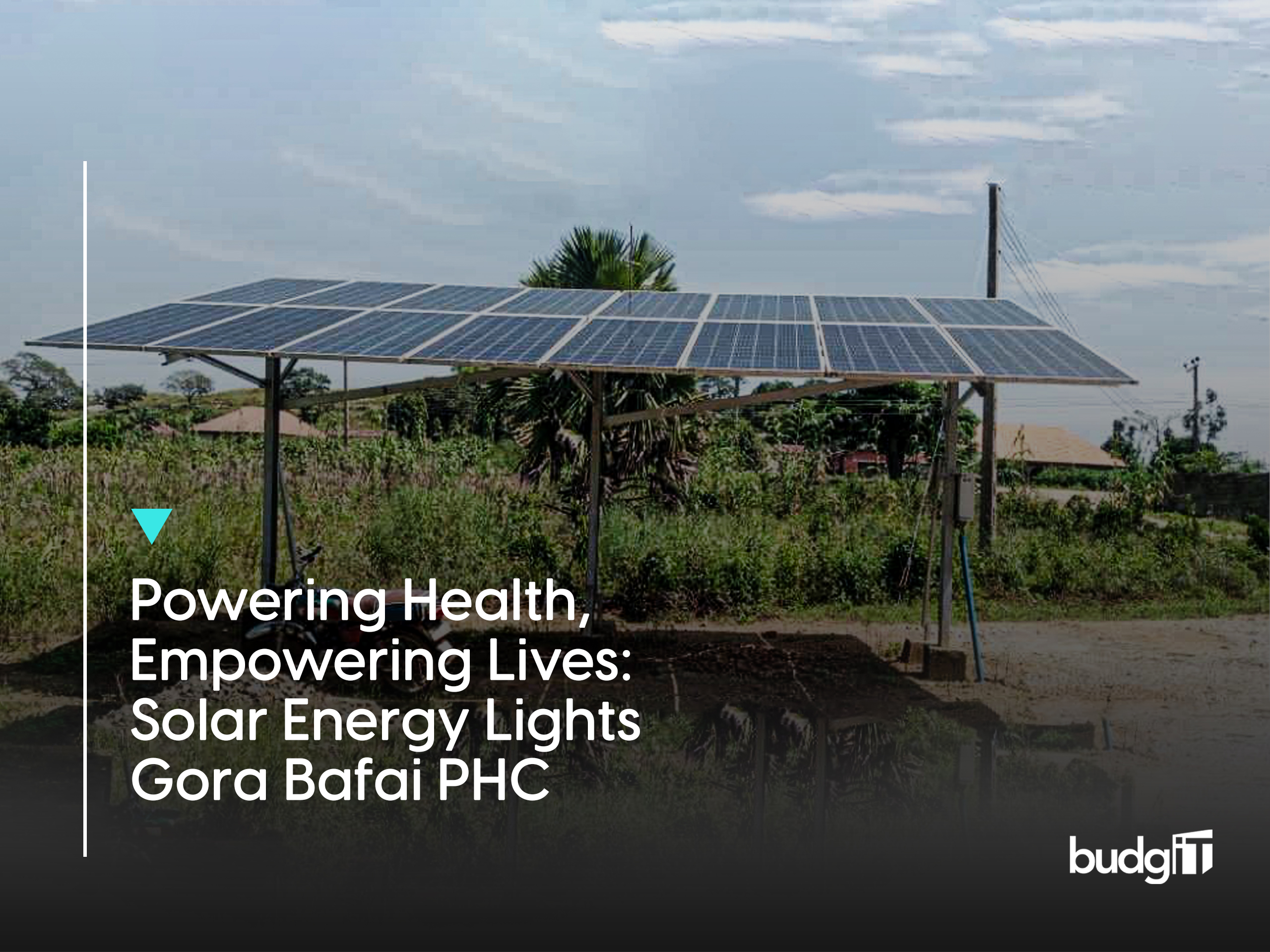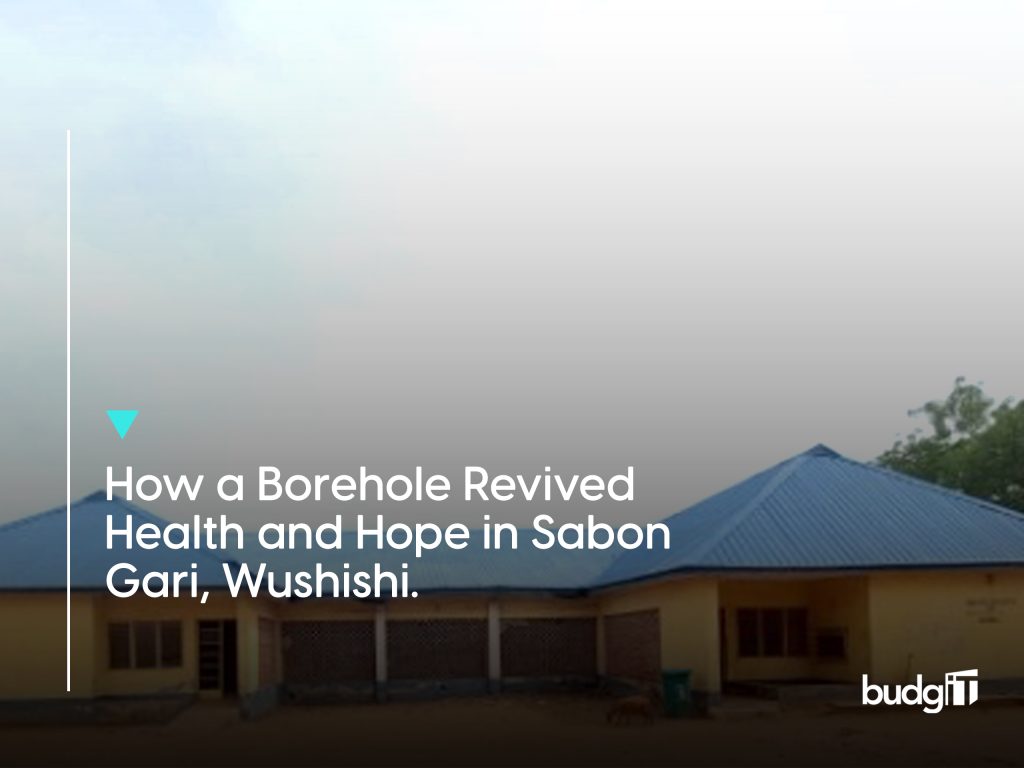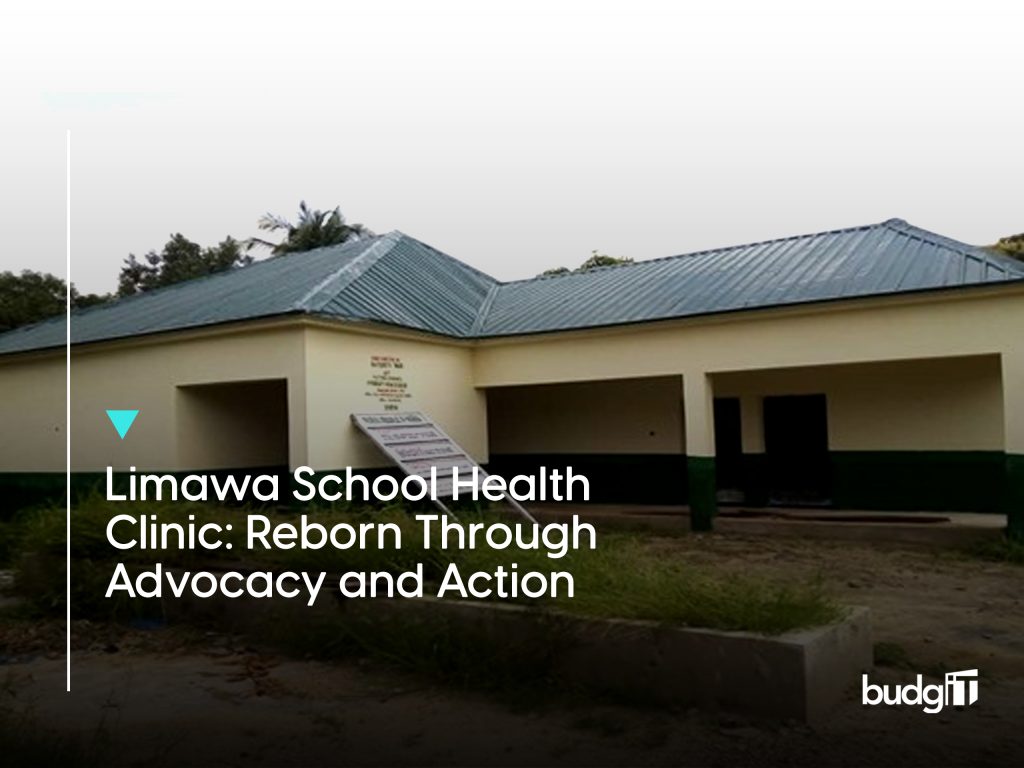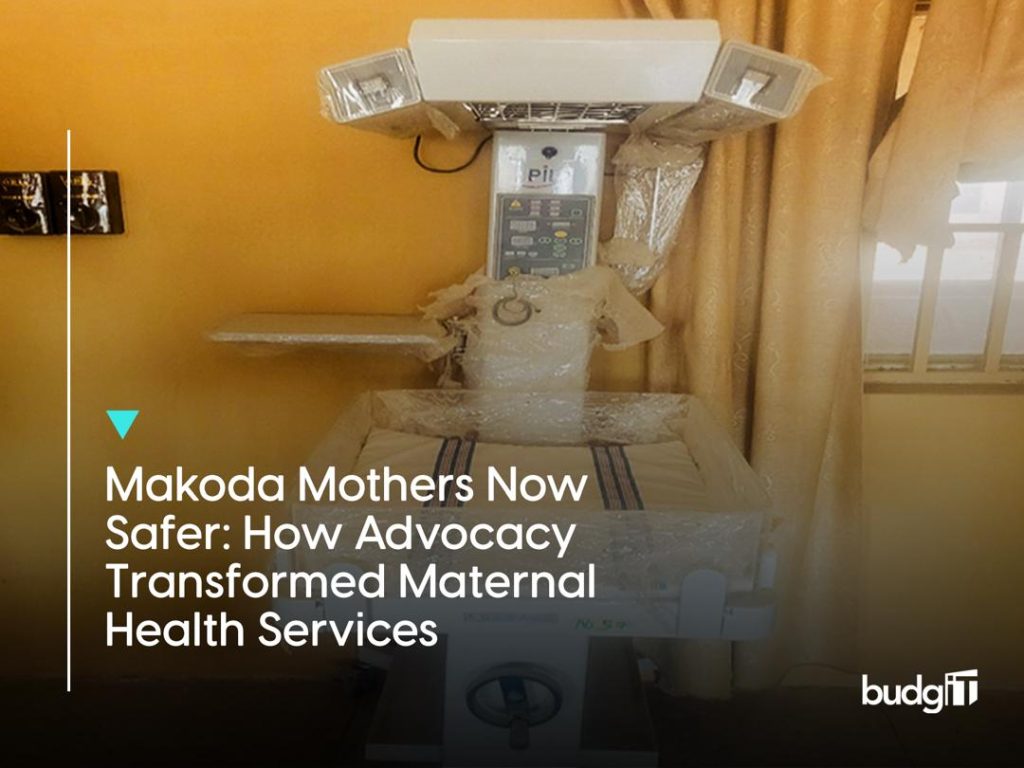For years, the Primary Health Centre (PHC) in Gora Bafai operated under the constant shadow of power outages. Serving a population of 7,401 people in the Gora Bafai community of Zango Kataf LGA, Kaduna State, Critical services such as maintaining immunisation vaccine cold chains, maternal delivery, and drug storage were hampered due to the lack of steady electricity. Health workers relied on torchlights at night, and life-saving vaccines were at risk of spoilage without proper refrigeration.
Following the advocacy efforts of the Strengthening Community Engagement and Accountability Project (SCEAP) project team in 2024, the situation changed significantly when the Kaduna State Government intervened with a game-changing initiative. The donation and installation of a solar power system to provide clean, reliable, and round-the-clock electricity to the facility.
During the implementation of SCEAP in 2023, BudgIT engaged state-level stakeholders, including health facility in-charges, community leaders, line ministries and agencies. We secured their commitments to support the project’s success.
As a rider on the state coordination meeting, our Community-Based Organisation, the Association of Positive Youth Living With HIV/AIDS in Nigeria (APYIN) Kaduna Chapter, assigned to implement SCEAP in Gora Bafai community / PHC Facility, conducted grassroots advocacies and town hall meetings to mobilise the community and stakeholders to address the issue of poor electricity supply at Gora Bafai PHC facility.
The APYIN SCEAP project team, including representatives of the community, had an advocacy visit to the Kaduna State Primary Healthcare Development Agency, where they presented the challenges of the PHC in the Gora Bafai community and sought their support for the facility.
Several town hall meetings were held at Gora Bafai’s PHC Facility, attended by the village head of Gora Bafai, the WDC chairman and members, facility management and staff, community members, women leaders, religious leaders, and youth leaders between 2023 and 2024.
In response to SCEAP’s advocacy to the Kaduna State Government, the Ministry of Health provided an alternative source of electricity by installing solar system panels at Gora Bafai PHC to support clinical procedures, thereby improving healthcare delivery to patients.
This good news was shared with us in January 2025 by Mr Gwani Kazavoh Gabriel, Programme Officer, APYIN Kaduna Chapter.
This solar installation goes beyond simply powering bulbs, it reflects the Kaduna State Government’s commitment to sustainable healthcare solutions and climate-friendly infrastructure.
Gora Bafai now stands as a model for how renewable energy can bridge service delivery gaps in rural health systems. The Officer-in-Charge, Ampana Tawai, expresses happiness. “Before the donation of the solar system, we used candles during childbirth. Now, we work with electricity at night. We feel safe, and our patients feel safe too.”
The community, inspired by this progress, has also committed to maintaining the solar infrastructure through the local Ward Development Committee (WDC).



